Yield of dreams: How farmers in Madagascar are defying drought with WFP climate insurance
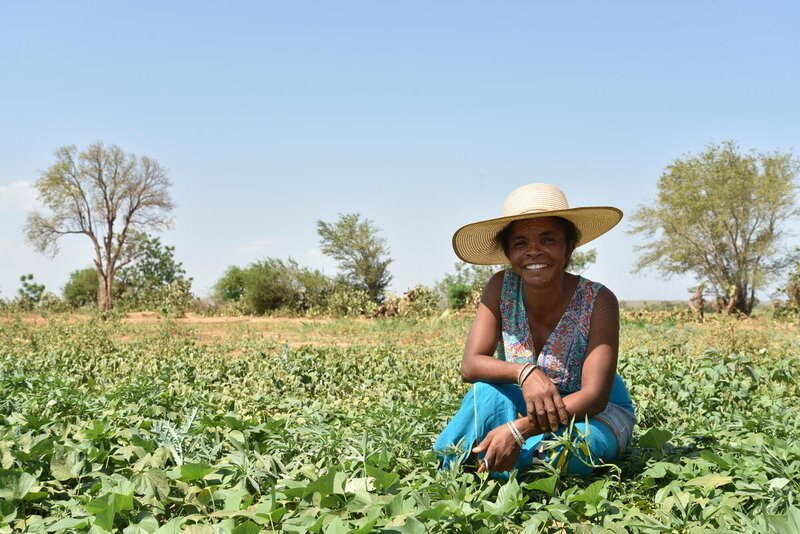
When the beans fail, it’s a warning sign – beans are the most resilient among the crops Odile grows. They can make it through the scorching heat in the village of Anjahamahavelo, in southern Madagascar’s Anosy region.
The farmer, a mother of four, cultivates onion, sweet potato, and corn too – when the corn harvest fails an insurance payout is triggered as part of a scheme launched by WFP last year. This provides a critical lifeline for Odile amid the drought that is crippling the region.
Beans are easier to plant off-season. “They produce quickly,” she says. “They are planted in April, watered three or four times and they produce a harvest.”
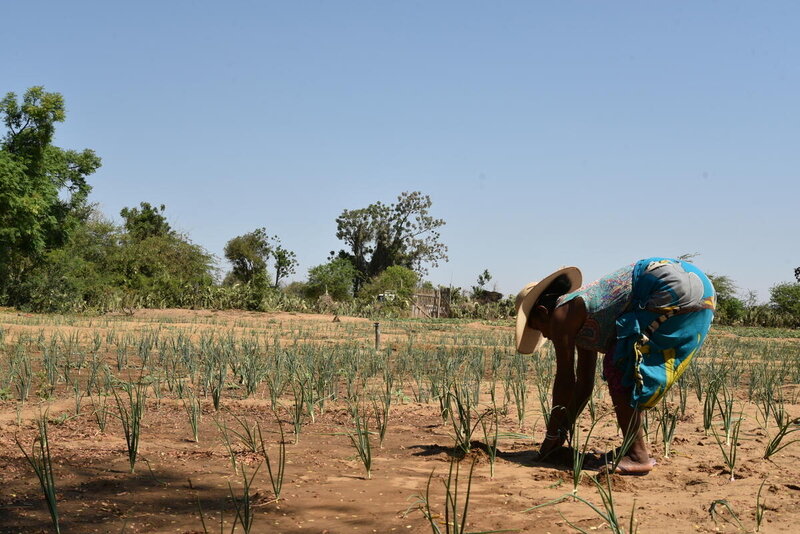
The last rains were in April. For the past two years, the water that planting and harvests depend on has not arrived in October, putting the futures of children including Odile’s in question.
Hers is a sad story and an all too common one across the island nation off the southern coast of Africa, which is struggling with extreme weather – 1.1 million people are suffering from hunger, with nearly 14,000 people in “famine-like conditions” – a figure expected to double by the end of the year.
In the south of Madagascar, many people are subsistence farmers who’ve lost their livelihoods as well as their only source of food due to erratic weather.
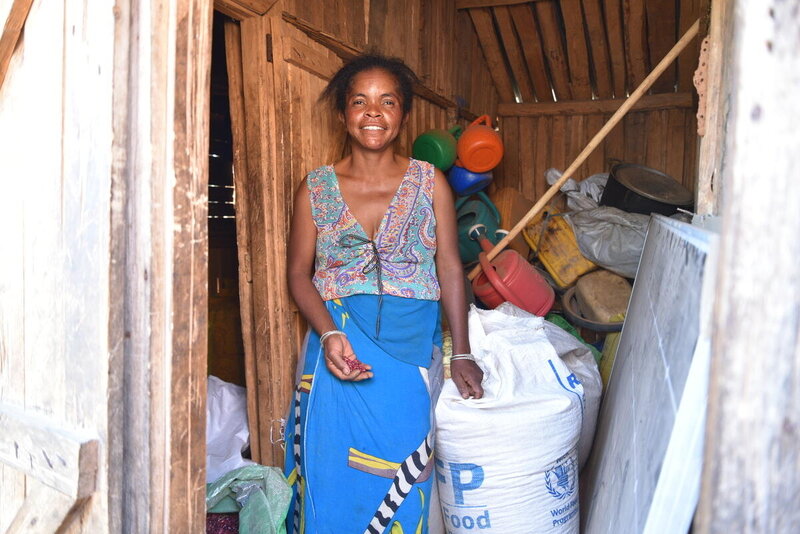
The World Food Programme (WFP) urgently needs funds to enable its critical emergency response work while empowering more and more people like her.
Customers who used to stop and eat at her hotely, or restaurant, can no longer afford to. Now, “they stock up and leave,” she says. “They don't spend money”.
There is, however, some good news. After the drought dried up Odile’s corn harvests, she received money from a payout through a microinsurance scheme supported by WFP, the Malagasy Government and private partners.
So while crops may dry up, hope doesn’t.
Most people who received the insurance payouts this year spent it on food – Odile is among the one percent who used it to rent land.
Ploughing into her savings, she supplemented the US$100 she received to do precisely that, grow more beans and corn.
Being a member of a savings-and-loans cooperative gives her access to a water pump that members use to irrigate their fields – drawing water from wells such as the one on her land.
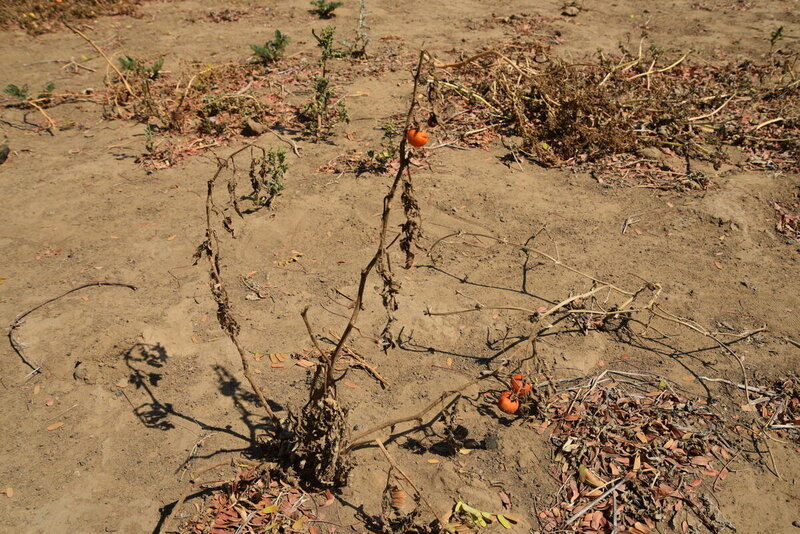
Next season, WFP will pay only part of the premium, with Odile contributing the remaining amount. Eventually, she should be in a position to pay for the whole amount herself.
A community leader who liaises closely with both WFP and UNICEF on matters of nutrition, Odile cares for three children, other than her own – of relatives who were unable to feed them.
In ensuring that she and her husband have enough to get by, producers like her have a critical role to play in making food available to communities.
Savings-and-loans cooperatives are the bedrock of WFP’s microinsurance schemes – they must have been running for at least a year to qualify for WFP support. The strength of savings groups lies in how members advise each other, and build relationships based on trust.
“The system relies more on social pressure than bureaucratic rules and structure,” says Frederica Andriamanantena, Climate and Insurance Officer for WFP in Madagascar.
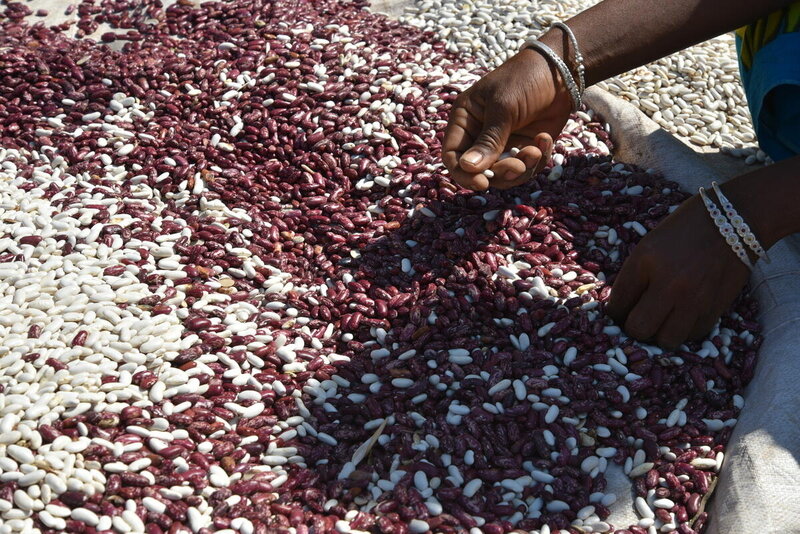
She adds that people with an existing level of productive capacity have a critical role to play.
“They have land, they have access to some seeds and they are located in the region affected by the drought, where there are other people who cannot access water, are under or malnourished.”
Frederica says that because of the group “rules and solidarity and the way members helped each other, they somehow survived the drought”.
She adds: “We really wanted to build insurance schemes so that it doesn't disturb any social organization, but provides an additional service to the already existing organization [aside from] emergency response, cash transfer, food transfers, for medium- to long-term benefit.”
Don’t look the other way: Madagascar in the grip of drought and famine
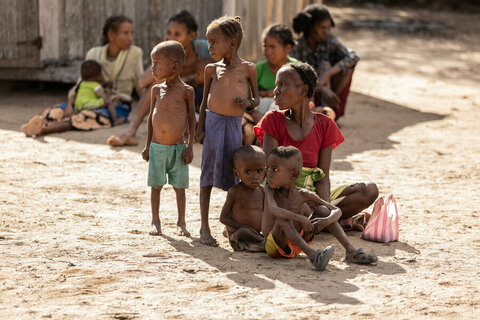
The challenge of infrastructure, such as roads and public transportation, remains, however.
“We wanted to target 3,500 people for the first year. But they are located in remote areas… the savings groups came as the potential solution to that. Everything would be organized within the group and the representative would be in touch with the insurance company and its partners to access the microinsurance product.”
Had WFP not intervened, Odile would likely have continued planting on her old land, hoping for the best — it’s a similar story across the country. WFP needs multi-year funding to scale-up climate risk management in Madagascar so more people like Odile could be protected from future climate extremes.
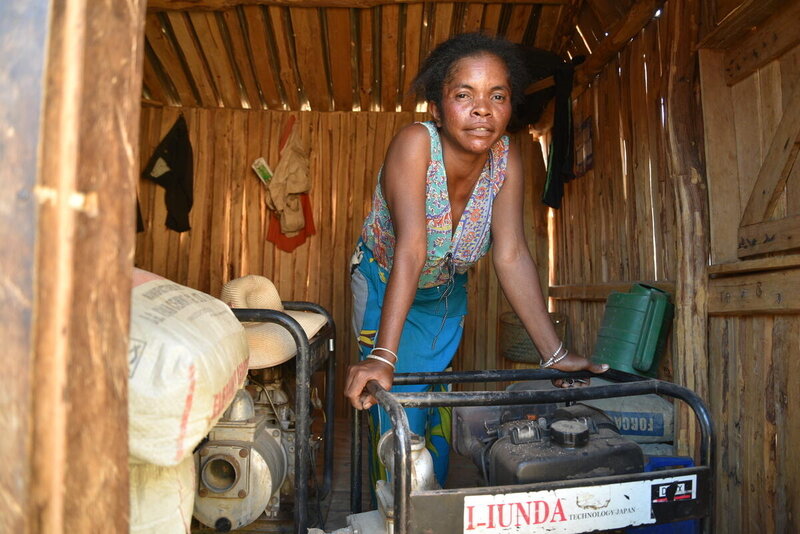
Now, before selling her beans, Odile sorts them and keeps the waste beans. The ones that don't look so good she separates to cook for her family – twice a day they eat.
Her youngest two children go to school and she is hoping for progress to continue so that she can afford to send her eldest children to university – and possibly become state employees in the agricultural sector, she says.
Next year, WFP will pay only part of the premium and after that she should be in a position to pay for the whole amount herself.
A community leader who liaises closely with both WFP and UNICEF on matters of nutrition, Odile is caring for three children, other than her own, of relatives who were unable to feed them.
In ensuring that she and her husband have enough to get by, producers like her have a critical role to play in making food available to communities.
